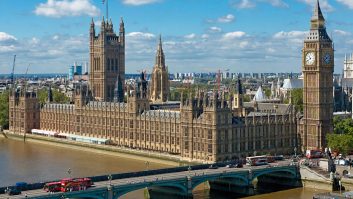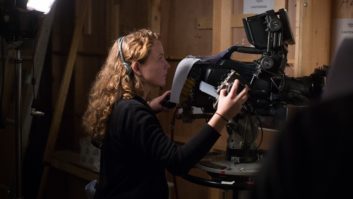Following last week’s announcement by Culture Secretary Lisa Nandy MP, figures from across the UK’s media and entertainment landscape have reacted to the £60 million funding programme intended to “turbocharge” Britain’s creative industries.
In Scotland, Mike Ellen, MD and creative director of Freedom Scripted, was positive about the announcement but called on the government to ensure the economic contribution of TV receives the same recognition as film. “I very much welcome this announcement and recognition of how key creative industries and IP are to the UK economy and the nations and regions. Film understandably gets a lot of mention, I’m very much hoping that filmic television is also baked into the government’s plans. It is only off the back of high-end TV that nations and regions have truly been able to build sustainable studios and infrastructure in recent years,” he commented.
Ellen also mentioned the need for all nations to receive equal treatment, adding, “Those of us based in Glasgow need to see more detail to understand how this will work; I’m noting no Scottish businesses or public bodies have been mentioned thus far.”

Also based in Glasgow, Derek Mclean, co-founder & MD of The Masked Singer producer Bandicoot highlighted the need to tackle increasing competition from foreign markets. “We welcome any efforts or attention that the government can give to the industry in the nations and regions. We are facing increasing competition from other territories, who have all identified the opportunities that this market offers. In a more global competition, we need the govt to step up to help us.” Noting the particular importance of the non-scripted industry “in which the UK normally excels as an exporter for ideas and formats,” he asked the government to ensure parity of esteem with the scripted market.
Regional investment is an important consideration for Stephen Dunleavy, CEO at Bristol-based natural history company Humble Bee, who said, “The West of England has long been a creative powerhouse. Anything that can help create or sustain jobs in the region is good news but this needs to be backed by a longer-term plan of investment, so we can look with confidence to the future.” Acknowledging the positive economic impact of creative industries investment, he welcomed the announcement, saying “[it] is much needed during a period of huge disruption in the media sector.”
“It’s clearly good news that the government recognises the value of the creative industries to the UK economy,” said Katy Thorogood, chief creative officer of True North Productions in Leeds, adding that she would like further information about plans for the investment.
“As ever, the devil’s in the detail about how that £60 million will be allocated,” she said. “For a company like ours with ambitious plans for growth we’d hope that money could help fund and foster the development process, especially for ideas with international appeal that could be game-changing to our business.”





